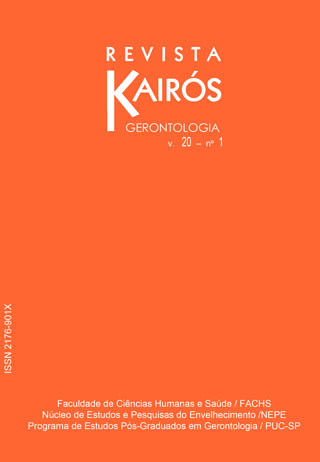Physiotherapy urinary incontinence: views on the quality of life of elderly women
DOI:
https://doi.org/10.23925/2176-901X.2017v20i1p221-238Keywords:
Physiotherapy, Urinary Incontinence, Women, Quality of Life.Abstract
Purpose: to characterize the profile and the prevalence of urinary incontinence types in adult-elderly women, and to evaluate the quality of life of participants before and after a pelvic muscle strength training program. Methods: mixed and interventionist method of study, attended by 11 women with urinary incontinence complaints, all enrolled in an interdisciplinary program of teaching-research-extension linkage in regular physical activity. It consisted of kinesiotherapy sessions for strengthening the pelvic floor, for 3 months, 3 times a week, in group, for 50 minutes. Before the sessions 3 questionnaires were implemented: the Gaudenz-Fragebogen Questionnaire, to analyze the type of incontinence, the Quality Of Life Questionnaire, King's Health Questionnaire (KHG), and a Sociodemographic Questionnaire. At the end of the program, speeches were collected about the perception of improvement, which were interpreted in an interdisciplinary approach. Results: most of the women were married, with little schooling, multiparous and stress urinary incontinence. All showed perception of improvement after the strength training of the pelvic floor. Conclusion: pelvic floor muscle exercises, through strength training, proved effective in the improvement of the participants’ physical and emotional well-being.
Keywords: Physiotherapy; Urinary Incontinence; Women; Quality of Life.


